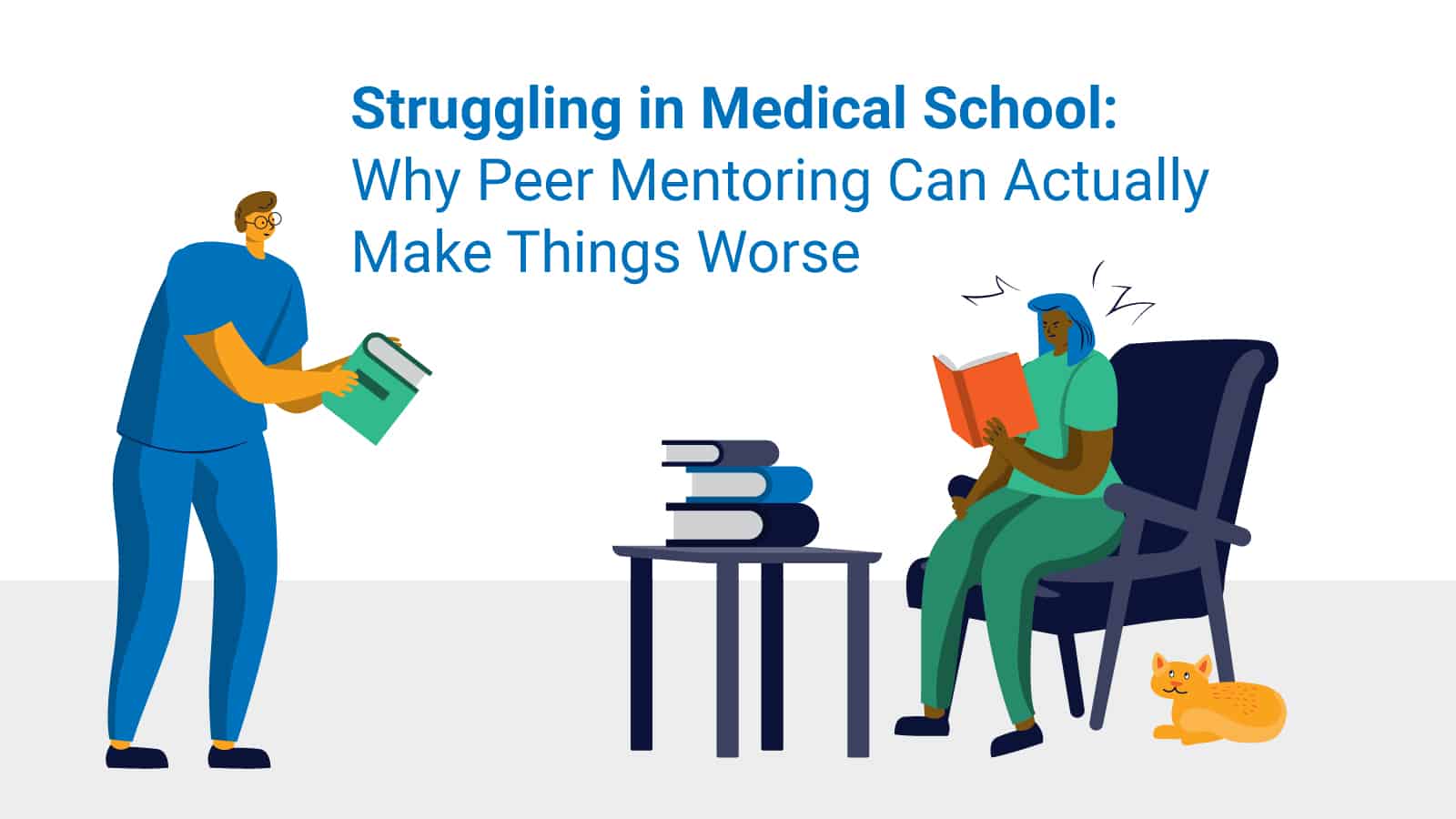Peer Mentoring is a Common Intervention for Struggling Medical Students. But It Can Backfire — Big Time.
This article is the fourth in a series by Dr. MJ, a graduate of an eastern US allopathic medical school who worked closely with STATMed Learning. Here, she shares her personal struggles and the steps she took to succeed in med school. This series aims to give a voice to what it’s like to struggle in med school and help share strategies to rebuild your self-esteem and regain your equilibrium.
I will preface this post by saying that I believe medical schools want their students to succeed and help them reach their goal of being a physician. But that doesn’t mean the interventions done on behalf of the students are always helpful. There is one specific intervention that I feel can be particularly detrimental – pairing a struggling student with one who is high-achieving.
Why Pairing Struggling Medical Students with Successful Peers Doesn’t Work
At first glance, the intervention seems entirely logical. The high-achieving student is clearly doing something right, so it seems evident that the struggling student can learn what techniques the successful student employs. But I believe there are two problems with this approach. First, most high-achieving students have probably always been high-achieving students. Undoubtedly, they have worked hard, but that hard work has consistently translated to success. So, it is unlikely that they have any frame of reference to understand the plight of a student working hard but not succeeding.
Related: 7 Things Struggling Med Students Really Don’t Need to Hear
When my medical school had me meet with one of the top students in the class above me, she was confused about how I could not be getting excellent grades if I was putting so much time into studying. I ended up feeling even worse about my situation after talking to her for 30 minutes and then did everything I could to avoid her for the rest of the year.
But I think there is an even bigger problem with this type of intervention. Most very successful students can’t articulate what they’re doing to get such good grades. Absorbing the material happens naturally for them. Their study techniques and methods are so innate that they can’t explain it to anyone, let alone a student who is struggling. In short, the school is asking the successful student to explicitly explain something they do implicitly.
As I said, I genuinely believe that medical schools want to help struggling students. And I also think that high achieving students want to help them too. But in my opinion, this particular intervention can sometimes do more harm than good – at least it did more harm than good for me. Are there instances where a high-achieving student has helped a struggling student? Of course. But I think that it takes a unique high-achieving student to provide that help.
If this sounds familiar, you’re not alone! Give us a call today to learn more about how we can help.
Interested in learning more about our study strategies? Explore our blog and YouTube channel for more strategies and insights.
